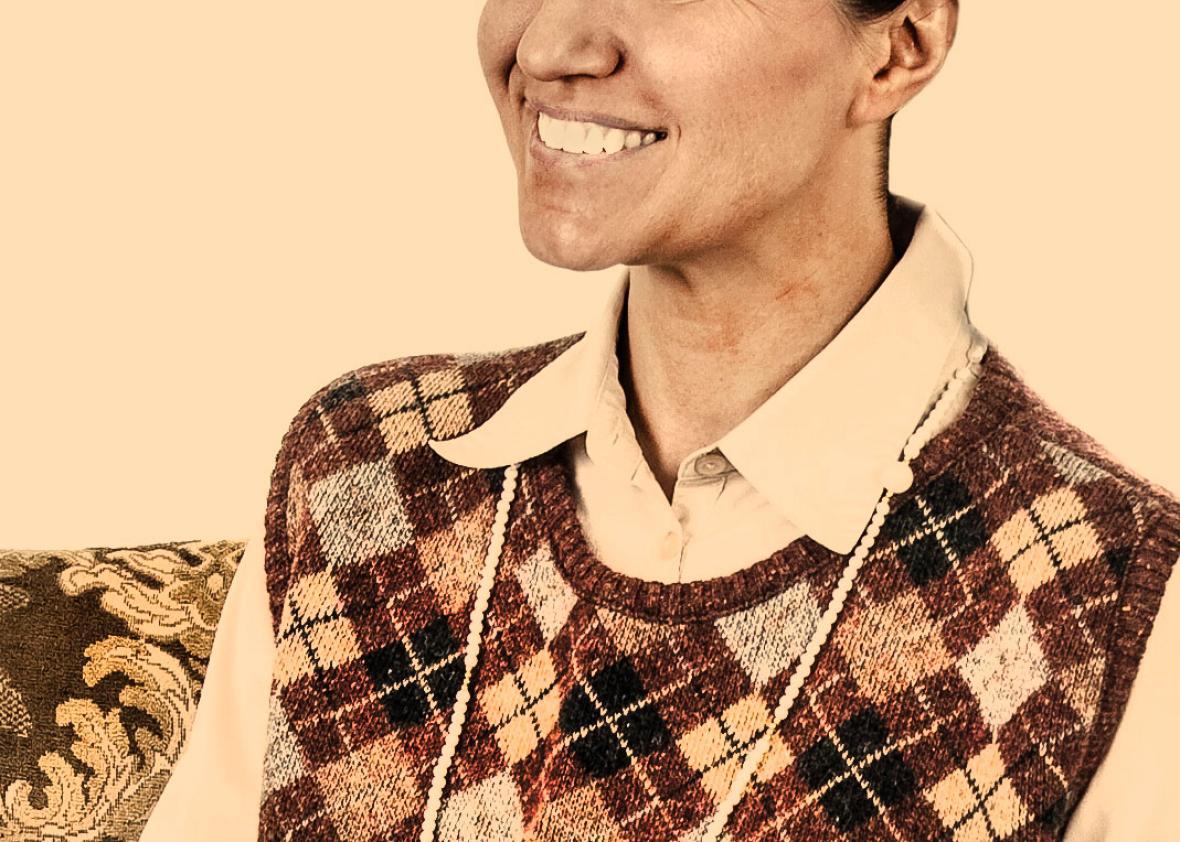I haven’t seen another human being wearing a sweater vest since I left Massachusetts, a situation I find highly unsettling. I’m a lesbian who wears men’s clothing, so it might come as a surprise to some that I’m not used to standing out in a crowd. But making a fashion statement has never been my intention—I just want to feel comfortable. Until I moved away from the liberal bastion where I was born and raised, it never felt as though I was making a statement with the way I dressed. Here in Tennessee, even the men look nothing like me—it’s a sports jersey and jeans crowd, where dressing up for a Friday night out means donning a Hawaiian shirt. As for masculine women, while there are some sporty tomboys around, I can’t tell who’s playing for my team and who’s just playing on a sports team. And none of them—male, female, or otherwise—wear sweater vests.
I never expected to miss living in a queer mecca. I certainly didn’t appreciate it at the time. I’m not what anyone would call an aficionado of gay culture—quite the opposite. I used to roll my eyes at any suggestion that queer people need to be around our own kind to feel comfortable, and I still have more straight, cis friends than queer ones. I had no idea how great it felt to be surrounded by other people like me until I didn’t have that anymore.
My four-story condo complex in Cambridge, Massachusetts, wasn’t exactly teeming with women sporting short haircuts and men’s polo shirts, but there was another one downstairs from me. Walking around the city, it wasn’t at all rare to see others who met that general description. This meant that in Cambridge, people rarely looked twice at me. I was anonymous, unremarkable.
Not so in Knoxville, a town where the locals wear orange on Fridays to support the university’s football team. Here, I attract sideways glances, and sometimes glares, from passers-by. I also attract profuse declarations of support for gay rights from near-strangers, particularly when I’m out with my wife.
Such support is much more welcome than disapproval would be, but I still find it almost as unsettling. I miss feeling invisible more than I miss anything else about my home state. Sticking out from the crowd wears on me, as does feeling as though I’m an ambassador for gay rights and gender-nonconforming people everywhere. Don’t get me wrong—I’m proud to be doing my part to put a friendly, human face on the LGBTQ population, a population that still seems alien to many people. I think I do it well, too, judging from the number of friends and acquaintances I’ve made since moving here, many of whom didn’t really know anybody who was gay or gender-nonconforming before they met me. That’s a far cry from being comfortable, however. I was far more at ease feeling invisible back home than I am being a force for social change here.
I grew up lesbian in a time when gay and lesbian rights were among the most divisive political issues of our time, and I hated it. But I was luckier than I knew to find myself in a place where I wasn’t an oddity. I’ve often read complaints by people who believe that queer people like me seek out attention, that the reason sexual orientation and gender identity is such a constant focus in the media is because queer people crave the spotlight. This is 100 percent backward. For many Americans, queers are still a novelty, and we must be re-introduced and re-re-introduced until we become boring. As someone who has experienced both conditions, I can confidently say that being boring is definitely preferable.
